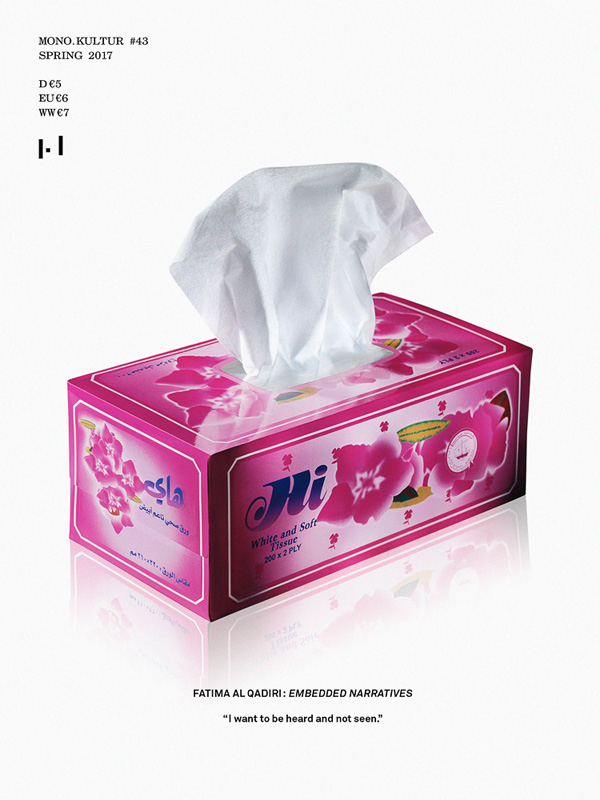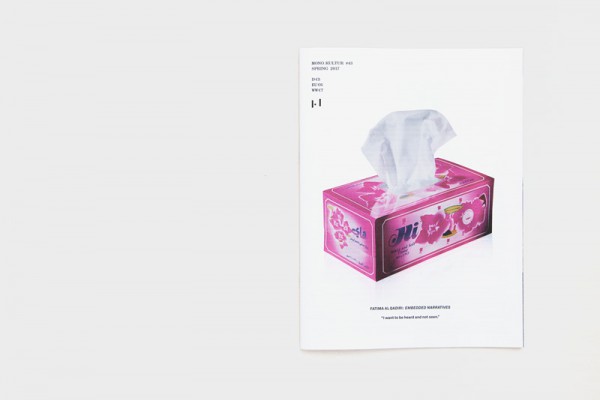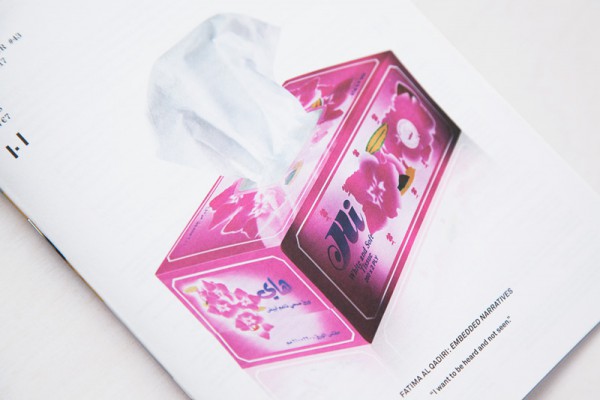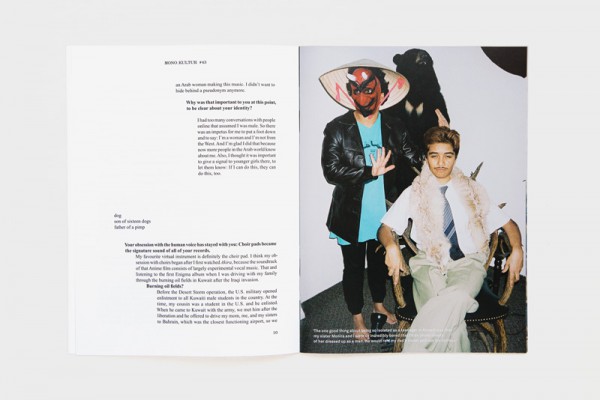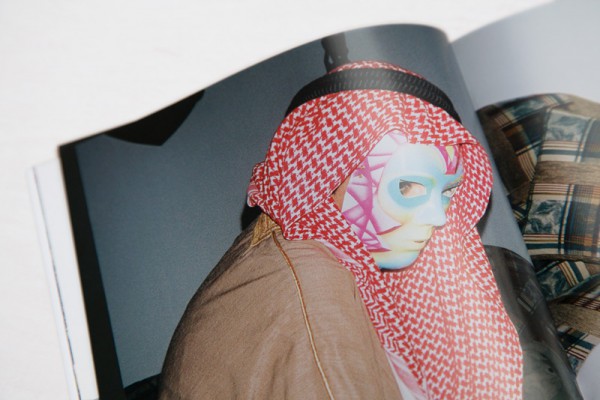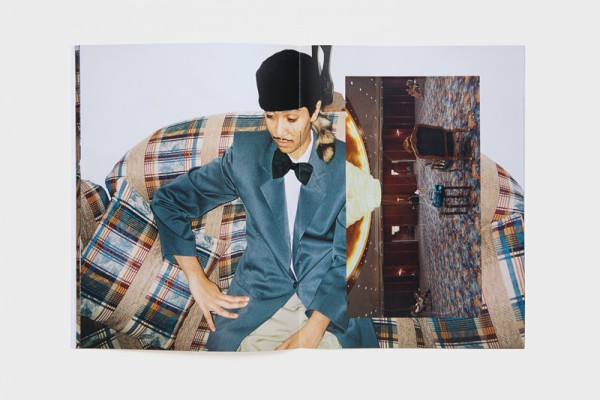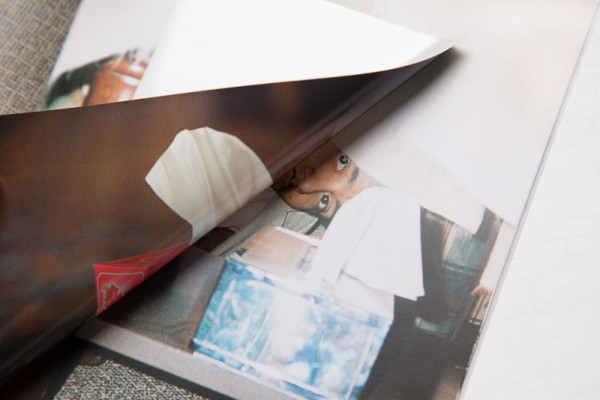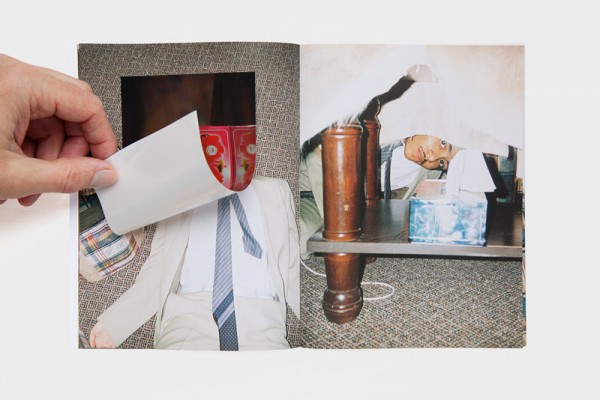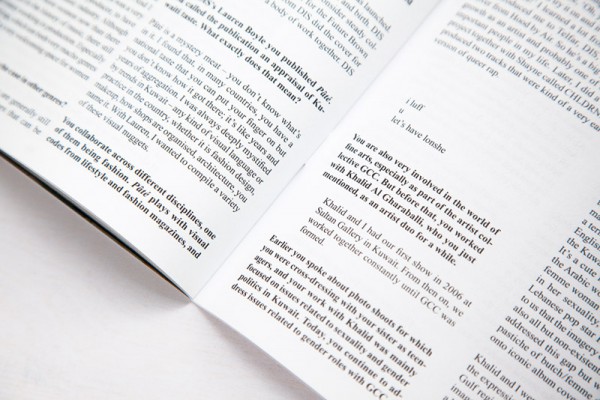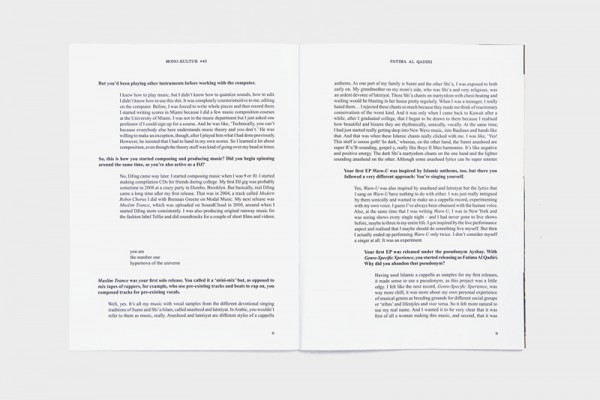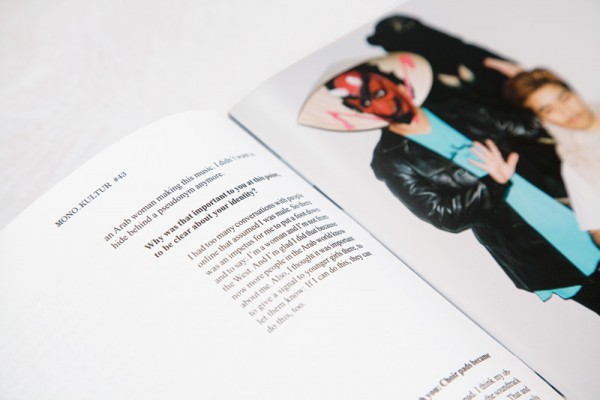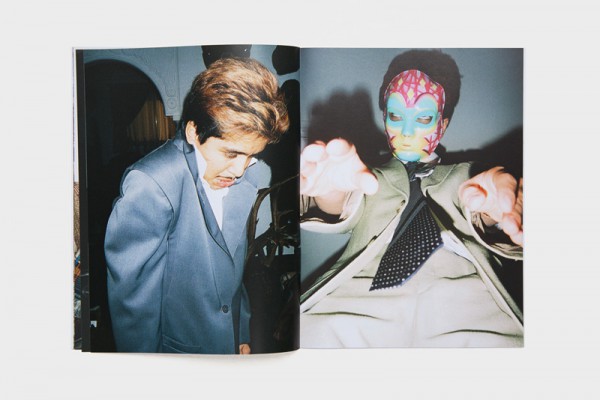Dear Friends,
the world has taken a darker turn since we last spoke, so we feel it’s a fitting time for our new issue mono.kultur #43 with Kuwaiti producer and visual artist Fatima Al Qadiri.
Bending and fusing different genres of music, Al Qadiri has released a handful of largely instrumental albums that often imply narratives wrapped in a dystopian atmosphere, evoking an uncanny imagery of our increasingly oversaturated and disorienting information age. It is a simple yet complicated sound that owes as much to electronic music and video game soundtracks as it does to Russian composers and Arab musical traditions.
It is music that draws not only from an eclectic range of contrasting influences, but from a layered personal background: Born in Senegal, Fatima Al Qadiri grew up in Kuwait, but was exposed to electronic music and club culture during frequent stays in London and studies in the USA. It is in New York where she soon established her own place within the art and music scenes, as comfortable producing music in her own name as she is conceiving art installations as a member of the artist collective GCC or providing sound to the fashion shows of labels such as Telfar and Hood by Air.
But regardless of the genre or medium, almost all of Al Qadiri’s work is defined by the thematic undercurrents that run throughout her records, installations, and collaborations, dealing with cultural stereotypes, notions of place and displacement, regional and global politics, and concepts of national but also gender and sexual identity. Hers is a sound very much of the here and now, channeling not only a multi-layered past, but a complicated present, processing a flux of input and information. Sound as a filtered reality, a kind of digital compression of personal obsessions and contemporary concerns.
With mono.kultur, Fatima Al Qadiri talked about the narratives within her music, the rhythm of history, and the soundtrack to burning oil fields.
Visually, the issue traces an arc from Fatima Al Qadiri’s youth to her current work. The main imagery comes from her series Bored 1997, for which, at 16, she took photographs of her younger sister Monira dressing up in their father’s clothes. The series is published here for the first time in print, interspersed with stills from a current video work on gender reversal and Kuwaiti rituals, inserted as static stickers.
Available as ever through our online store mono.konsum, or at the trusted book dealer of your choice very soon indeed.
Enjoy and all our best,
mono.kultur
–––
mono.kultur #43
FATIMA AL QADIRI: EMBEDDED NARRATIVES
“I want to be heard and not seen.”
Spring 2017 / English / 15 x 20 cm / 40 Pages / 4 Static Stickers
Interview by Daniel Berndt
Works by Fatima Al Qadiri
Design by Fuchs Borst
–––
